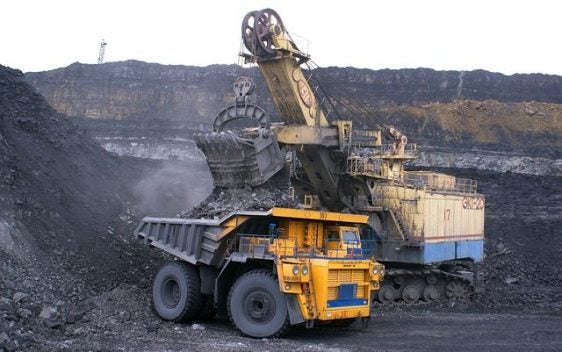Buckingham supervisors’ plan won’t work, mining experts say
Published 3:41 am Thursday, March 23, 2023
|
Getting your Trinity Audio player ready...
|
DILLWYN – A metallic mining ban won’t solve Buckingham County’s concerns, mining experts say. Instead, they argue, it might damage or shut down existing mineral mining operations in the area, as state and federal regulators see no difference between the two.
Earlier this year, the Buckingham County Board of Supervisors voted to explore a metallic mining ban. However, that’s not something the board of supervisors can simply approve. Because this would change the county’s zoning ordinance, it first has to go to the planning commission. And during a Monday, March 20 work session, planning commission members learned about possible challenges such a ban would bring.
The issue is that, in the eyes of the state and federal governments, there’s no distinction between metal mining and mineral mining. Kyanite Mining Corporation, which mines and sells kyanite ore in Buckingham, pulls out iron as part of its mineral mining process. If metallic mining is banned, does that mean Kyanite’s Buckingham operation would have to find a new way of processing what they find? Would they still be able to sell the iron?
“There’s no difference in how the regulators deal with those operations,” said Rob Lanham. He serves as program manager for the Virginia Transportation Construction Alliance. They handle more than 92% of all metals and minerals mined in Virginia. “If (Kyanite) is selling the iron out of (their) plant, does that now make them a metal mine? Iron clearly is a metal. That’s the caution we’re advising you of. It’s not a clear divisive split.”
In fact, Lanham said, mineral mining is linked so close to metallic that there are just two definitions recognized by the state and federal officials.
“Metal and non-metal mining are synonymous,” Lanham said. “The mine safety health administration (only) recognizes two mining components, coal and metal/non-metal.”
Potential penalties for mining
That means if a ban goes into effect for any metallic mine, the distinction is so close, companies are worried the state would enforce it against mineral mines too.
“All the regulations are the same,” said Paul Saunders. He works in the Virginia Department of Energy’s mineral mining operation. “They fall under the same regulatory review program.”
Commission members kept asking Kyanite President Guy Dixon and Spencer Young from Arvonia Slate Mine if their operations would be considered metallic mining. They wanted a clear definition. Dixon pointed out that by the state and federal rules, it’s not as simple as metallic or non-metallic.
“The state doesn’t view a difference between metal and non-metal,” Dixon said. He emphasized what Lanham said earlier, that the only difference is between coal and everything else. So he encouraged planning commission members to think hard before making any recommendations to county supervisors. Any decisions made about metallic mines will likely impact his company, Dixon said, and all other mining operations in Buckingham.
“You’re the ones getting ready to make the rule, so you better be pretty clear,” Dixon told the commission.
The economic impact of mining
As of 2021, the last available data, there are 211 workers employed by the mine industry in Buckingham County. That doesn’t count support jobs connected to the companies. Kyanite on its own has an annual payroll of $10 million, with another $1 million that goes into employee retirement plans. The company also has purchased several hundred acres of land in the county, planning for future expansion.
“We bought those pieces of property with the understanding that nobody was going to rip the rug out from under our feet and we need those pieces of property to be here 75 years from now,” Dixon said. “We can’t have the rules radically ripped up and changed in the middle of the game. If you change those rules, it will for sure affect the longevity of what we’re able to do.”
If the county does push through a ban that damages Kyanite’s operation, Dixon said the group would have to consider a change. He pointed out that Kyanite has bought the right to mine in several other places besides Buckingham.
Concern over chemical ban
Buckingham also couldn’t just ban certain chemicals used in the process, like cyanide, the mine officials said. That was an alternative proposed earlier this year by planning commission member Danny Allen. Again, they argue, it’s needed in the process. Also, they’re afraid it could trigger a domino effect.
“Some chemical use is required for certain types of mining,” Lanham said. “Additionally, a general ban of chemical use in mining can set a precedent.”
If you ban certain chemicals in mining, Lanham argued, there’s a concern it would be banned in all industries linked to mining.
Mining also isn’t something that’s just going to go away. Dr. Erik Westman, from Virginia Tech University’s Mining and Minerals Engineering Department, pointed out that all of us, even those opposed to mining, use products developed by it every day.
“There are more minerals in an iPhone than in a human body,” Westman said. “There’s some gold in there. We use gold because it’s the metal that oxidizes the least. We use silicate, cobalt.”
He pointed out that mined lithium is used to make electric car batteries. Limestone helps make everything from roofing shingles to duct tape. And all of that has to come from somewhere. And there are responsible mining companies, he added.
“Just like there are good drivers and bad drivers, there are good mining operators and bad,” Westman said.
Time to hear from the opposition
After Monday’s meeting, planning commission members said they still needed more information before making a decision. To do that, they’ll hold another work session, this time with some experts opposed to mining. This next meeting will be held Wednesday, April 19, at 6 p.m.






